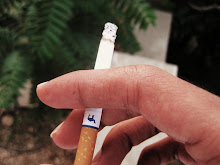
Images and words, remains as the spectrum of the musical genius of Dream Theater. Released in 1992, it transcends the then musical scene, bringing in unusual structure in rhythm and riffs. Rightly so, a chaos in motion, and like many other modern day worshipers of metal, I consider it as a seminal release in the progressive metal scene. Learning to live, the very last track in the album, is a true rainbow of the caliber of Labrie, Petrucci, Moore, Myung and Portnoy. Not something like the smash radio hit Pull me under, but its more of a diverse trend, a true transition into the mastery of 90's metal.
Myung's lyrics apparently touches upon the theme of catastrophe of HIV AIDS and similar epidemics, from an emotional standpoint. The opening lines of the song, is a direct paraphrase of lines from Ayn Rand's Atlas Shrugged. "There was no time for pain, no energy for anger. Sightlessness of hatred slips away." is directly lifted from "He had no time for pain, no energy for anger. Within a few weeks, it was over; the blinding stabs of hatred ceased and did not return." (p.211 of the Centennial Edition). Next few lines , "Walking through winter streets along, he stops and takes a breath, with confidence and self-control," are also similar to the next few sentences in the book.
It took me a while, to enter into the realms of this song. The length of this song, wasn't the major reason, but its unusual structure demands time from the listener to get accustomed to. And once it hits you inside, it seldom leaves. At times, its heavy, the next moment it turns spacey, makes one difficult to grip. Its subtle, bears the generic cynicism of the band. Starting at 4:45, Labrie stops singing, and the instrumentation takes over. At approximately 6:58, he begins singing wordlessly, building up to a very high note that coincides with the song's main climax. This note is the highest note of any Dream Theater song ever written, being the F# under soprano C. There are many solos in the album, the most striking being that of Petrucci's which starts kicking at 8:10, leading up to the monumental climax of the song. There are very few solos in the following years of Petrucci, that can level up to such splendour. Kevin Moore's notes were as impeccable as ever, and brings out his dimensions, as one treads from the jazzy classic notes of Wait for sleep to this number. Once you have heard the end solo, I'm sure you'll feel like skipping ahead through the song, into the magic of Petrucci.
Learning to live
Crest of a knave

Released in 1987, much to the disapproval of orthodox tull fanatics, the album went unabated to the memoirs, as an instance of camouflage. On a first listening, Martin Barre's riffs, as affluent as they always have been, bear the Dire Straits sound e.g. Brothers in arms. One of the main reasons to talk of this album is its adherence to synth, progressive metal sound, something that brings in the decadence of traditional raw progressive tull-ish genre. Cannot be deemed as something as classic as Heavy Horses, but as a subtle gift we get two classic numbers, that remained as epic signature tull creations, namely Budapest and Farm on the freeway. Needless to say, they relied heavily on the electric guitar of Barre, Anderson's heavy vocals and effective use of flute.
The album is a strange mix of anxiety over progress - "Steel Monkey" about a high-rise building constructor and "Farm On The Freeway" about a farmer having to sell his home as it stood on the route of a proposed highway - and the band's tour of Eastern Europe and a series of unsuccessful encounters with the local female population - "She Said She Was Dancer" and "Budapest", depicting a backstage encounter with a shy female stagedancer. There are some fairly heavy (for Tull) riffs on this album - "Steel Monkey" and "Raising Steam" in particular - but the album as a whole cannot be termed as heavy. Steel Monkey is more reminiscent of money for nothing.
The album was a critical and commercial success. Jethro Tull went on to win a 1989 Grammy Award for Best Hard Rock/Metal Performance, beating odds-on favorites Metallica with their album And Justice for All . Under their manager's advice, no one from the band turned up to the award ceremony, as they were told that they had no chance of winning. In response to the criticism they received over the award, the band took out an advert in a British music periodical with the line, "The flute is a (heavy) metal instrument!" In 2007, the win was named one of the 10 biggest upsets in Grammy history by Entertainment Weekly.
Being an ardent lover of Knopfler, I couldn't have overlooked the essential similarity with them in this album. I won't term it as a derivative of Straits, but its an independent creation by itself. Anderson's vocals lack the usual recklessness , but it projects the other side of the band. To me its indispensable , and generically speaking, its easily one of the best outcomes in 80's rock scene.

